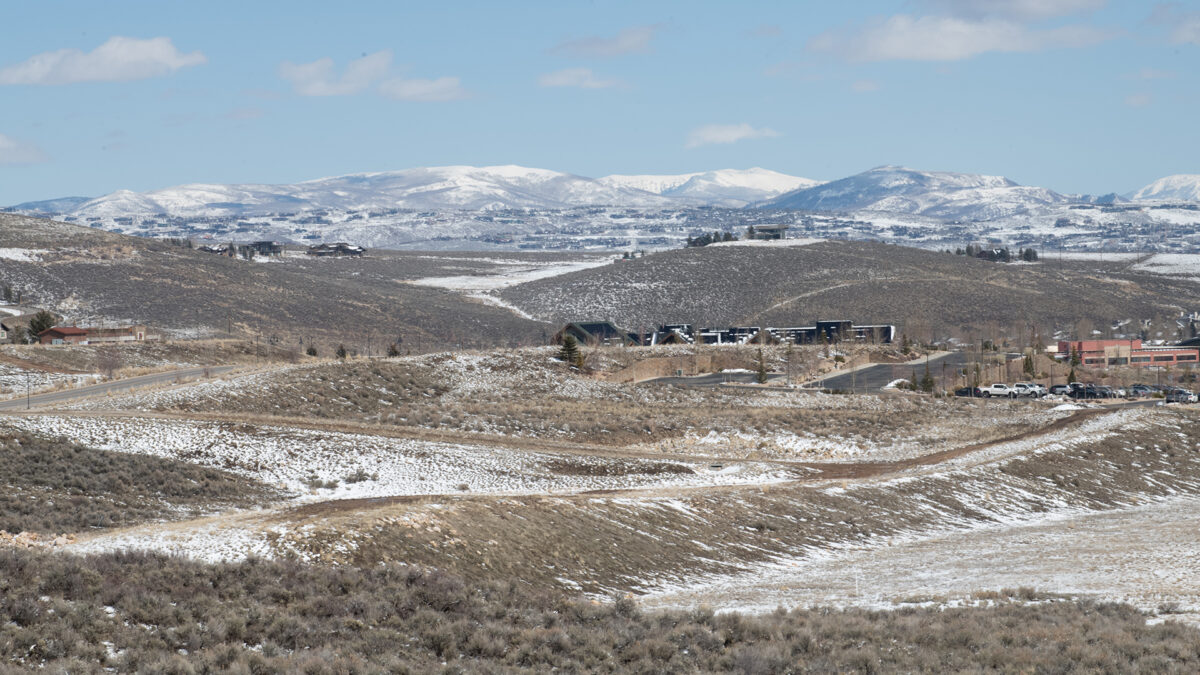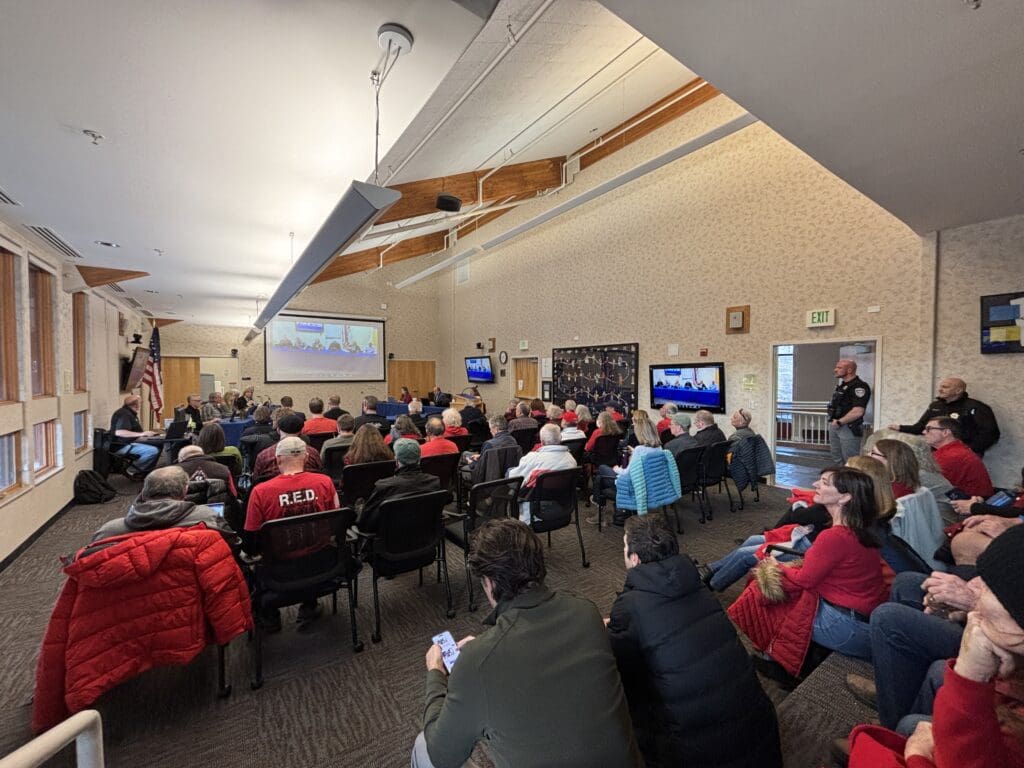Growth
State-mandated ordinance strips Summit County of development control, Manager says

A view of the land where the proposed Dakota Pacific Development is planned for. Photo: TownLift//Randi Sidman-Moore
SUMMIT COUNTY, Utah – A new temporary zoning ordinance adopted by the Summit County Council this week will allow developers in Snyderville Basin to apply for an administrative development agreement, a process that eliminates the need for County Council approval and cannot be overturned by voters.
While the ordinance applies broadly, it is widely seen as being designed specifically for Dakota Pacific Real Estate. The company gained long-sought approval to develop land around the Kimball Junction Transit Center when the county council approved an amended development agreement (Ordinance 987) in December 2024 allowing the 850-unit neighborhood near Skullcandy’s headquarters, alongside county-owned affordable housing and an expanded transit center.
The ordinance, which will be in effect for six months, was enacted to bring Summit County’s development code into compliance with Senate Bill 26, a state law signed by Governor Spencer Cox on March 12, 2025. That law rezoned property in unincorporated Summit County and requires the county to implement the rezone through an administrative land use permit process.

Summit County Manager Shayne Scott says the temporary zoning ordinance passed on April 9 is a direct response to Senate Bill 26. Scott confirmed that Dakota Pacific has not yet submitted an application, but the new process paves the way for the company to move forward.
“This is normally a legislative process that goes to the council,” Scott said. “SB 26 has now made it an administrative process, meaning my role is simply to ensure they meet the standards—it’s not about whether this is a good idea or not.”
Scott emphasized that the state legislature, not the county, made the final decision on the Kimball Junction rezone. “The decision was made at the Senate and House level,” he said. “Now we’re just facilitating the process.”
County had limited control in drafting ordinance
When asked about the county’s role in shaping the ordinance, Scott said officials had little say in the matter. “The decision-making was taken out of the county’s hands,” he said. While he acknowledged that the ordinance largely reflects the December 2024 agreement between the County Council and Dakota Pacific, he remains frustrated by the loss of local control.
“I don’t like any bill that takes a process we should be in charge of and removes us from it,” Scott said. “Local control is important—whether we’re making good decisions or bad decisions, they should be ours to make.”
Scott also addressed why Summit County did not push back against SB 26 as strongly as it did against similar legislation in 2023. He explained that while county officials were still deeply troubled by the loss of control, the circumstances were different this time.
“In 2023, we felt like what was being presented to us was being shoved down our throats,” Scott said. “This time, while the process wasn’t perfect, we ended up with something the council was comfortable with. That makes the dynamics different.”
Still, Scott acknowledged the state’s authority in making laws and said the county’s role now is to comply while continuing to advocate for local governance. “We’ll continue working with legislators and organizations like the Utah Association of Counties and Utah League of Cities and Towns to prevent further loss of control,” he said.
With Dakota Pacific and other developers now able to move forward, Scott expects to see movement on applications within the next six months.
Local control stripped: what the new ordinance means
The temporary zoning ordinance and Senate Bill 26 strip Summit County of local control over development, shifting decision-making power away from elected officials and residents. By mandating a state-imposed rezone around Kimball Junction and introducing a fast-tracked approval process, the law bypasses the County Council and limits public input on major development projects.
Unlike traditional agreements requiring County Council approval, the ordinance states that an administrative development agreement only needs the County Manager’s sign-off, making it binding for up to five years. While projects still have to adhere to zoning laws and infrastructure requirements, the public cannot overturn these agreements, and only affected landowners may appeal—cases that go to the County Council in a judicial, not legislative, capacity.
Summit County Community Development Director Peter Barnes said the ordinance is necessary to comply with the state mandate and provide a clear process for handling development applications.
The decision is expected to accelerate Dakota Pacific’s plans for Kimball Junction, despite strong opposition from thousands of residents, who signed a petition for a referendum seeking to put the county council’s decision on the November ballot.
With the six-month window now open, Dakota Pacific and other developers can apply for administrative development agreements. The county will likely see rapid movement on the Kimball Junction project in the coming months, county officials said.



















